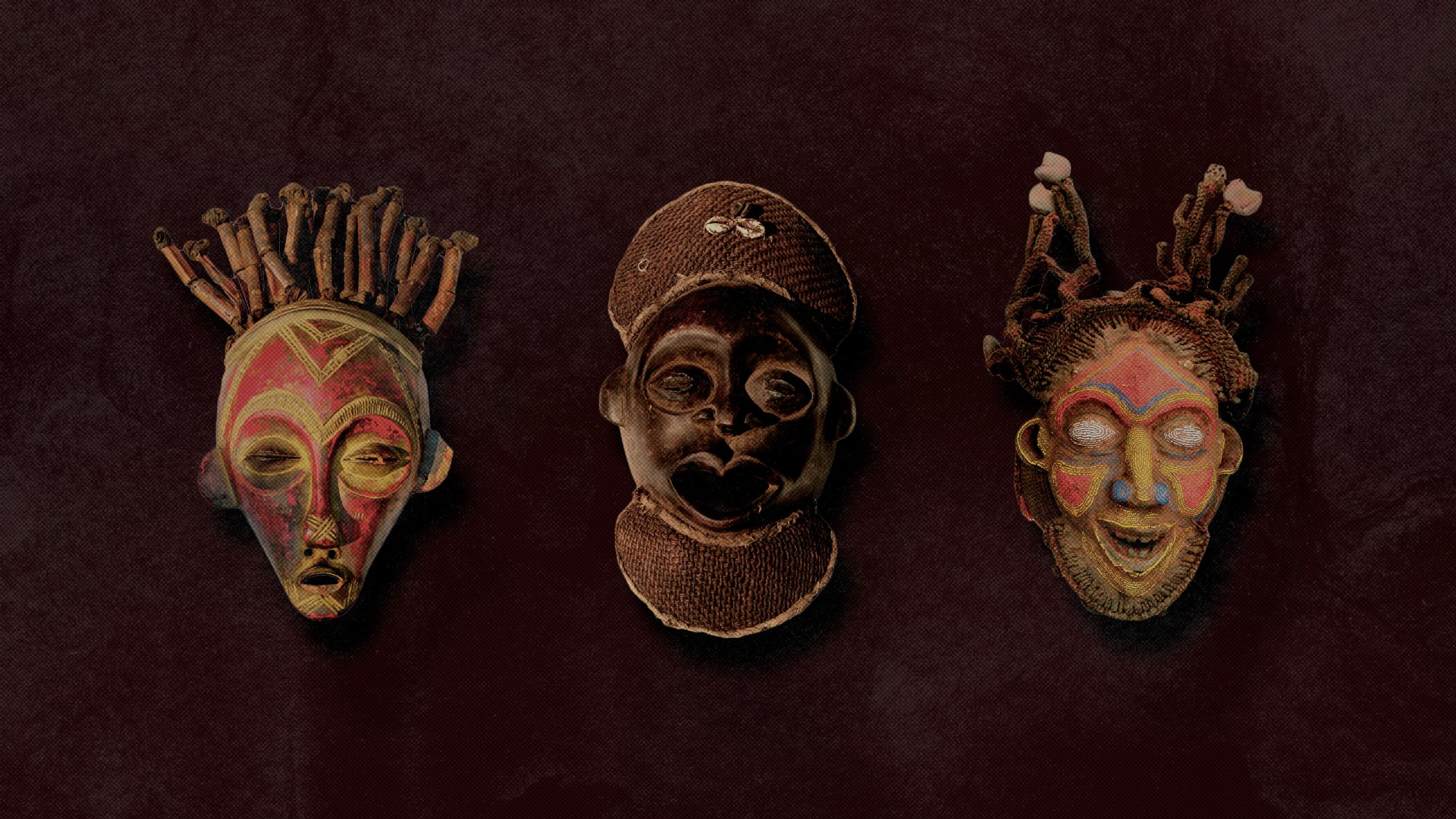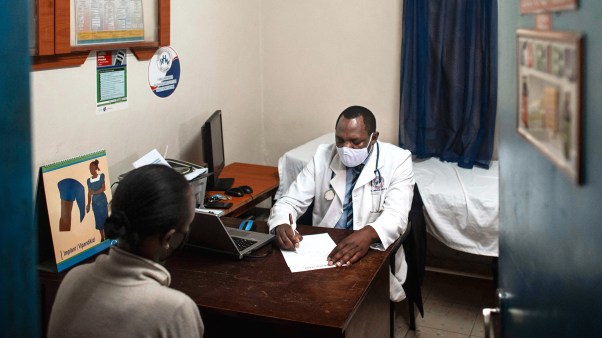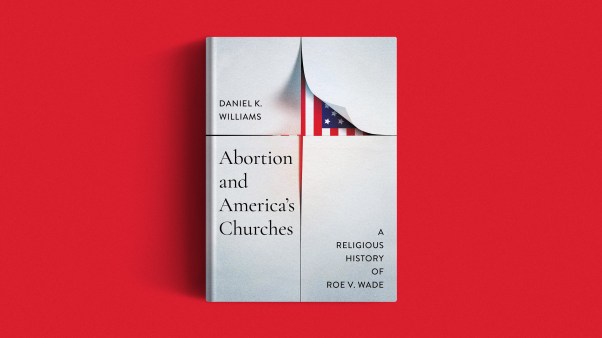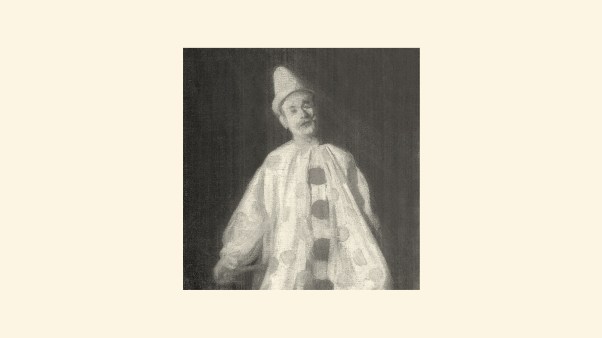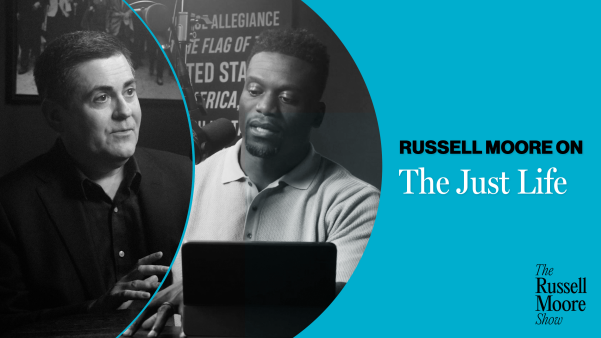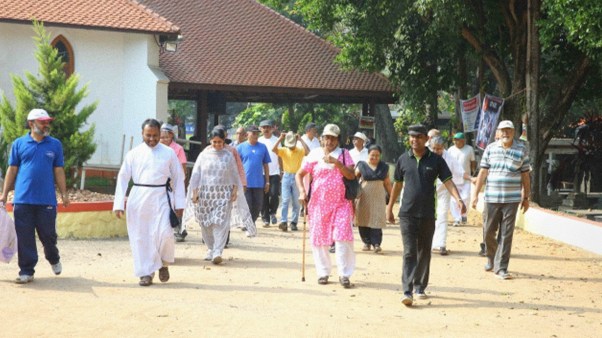A seminary student told me a story that had been circulating in his church: A member of his congregation sold his wife's life, so she died in an automobile accident. The church member remarried, but kept a room in his house where he allowed nobody, including his new wife. One day, he forgot to lock the door. His new wife snuck in and discovered the first wife's corpse spitting new Nigerian money on the floor.
Elisha Telena, a Neo-Pentecostal pastor in Jos, told me another story about witchcraft. He said he had discovered witches in his congregation. One member had come to him because her husband lay ill. According to Telena, she and her son pretended to be concerned about the man's illness and wanted him "delivered." But Telena told his congregation that while he was trying to deliver the sick man, God revealed to him that the woman and her son were the culprits. They had used witchcraft to bind him in the spirit world.
The fear of evil spiritual forces hovers like a cloud over African Christianity. Dealing with (and in) witchcraft isn't foreign to the church. In fact, the Yoruba people of southwest Nigeria say, "Olorun ko ko aafo," i.e., "God is not opposed to native remedies." In times of crisis, even Christians may consult medicine men.
But when Pope Benedict brought it up during his African pilgrimage, he was addressing not just syncretistic practices, but also the belief in them. "Who can go to [Angolans] to proclaim that Christ has triumphed over death and all those occult powers?" he asked.
Fear of sorcery
The problem is old, and it has gotten worse.
Western missionary Christianity had thought that with time Christianity would uproot the witchcraft and sorcery which have long been part of traditional Africa.
Opoky Onyinah, a Pentecostal pastor, says that before the 20th century, people went to priests of African gods, sorcerers, or medicine men and women for spiritual protection. At the turn of the century, people began to look to the church for victory in the spirit world. Classical Pentecostalism and other forms of orthodox Christianity had played down deliverance ministry. But, in response to church members' pressure, a rebranded Pentecostalism began to put a premium on "deliverance services."
In the 1970s, theologian Byang Kato warned about syncretism undermining the pure gospel in Africa. At that time, many dismissed his concerns. Today, his predictions seem to have come true. Witchcraft's resurgence in modern Africa is connected with the poor healthcare system and with diseases like HIV and AIDS. Life expectancy in Nigeria has dropped to 47 years. When something tragic happens, many Africans ask, "Who caused this?" rather than, "What caused this?" They often see disease, suffering, pain, and death as supernatural evils—and witches as the culprits. Therefore, public-health disasters, plus the problem of evil, create a sense of powerlessness and paralyzing fear.
But, beyond inadequate public health measures, there is another reason the church hasn't stamped out fear of sorcery. Church growth is directly linked to that fear. People seek protection from witches and thus help fuel the unprecedented growth of Christianity in Africa. Many, from top government officials to the lowest in society, join neo-Pentecostal churches because of their emphasis on deliverance and protection. The proliferation of this ministry has caused even classical Pentecostals and others in Africa to reconsider their orthodox beliefs and practices.
African scholar Aylward Shorter writes that belief in witchcraft is so pervasive that "at the popular level the African believer is often more engrossed in the identification of human sources of evil, and in counteracting them, than in the acknowledgement and worship of superior forces of good." As a result, witch finding is an important part of social life.
Deliverance
Testimonies and preaching about the works of demons and how God's power can free people dominate a mass deliverance service. Before the main session, some clients see the exorcist in their homes. Onyinah writes that clients often have to fill out an exhaustive background questionnaire, and then answer questions that are supposed to determine the supernatural cause of the problem.
During the service, both those who had seen the exorcist and others form queues. The leader prays. Some leaders use this time to sell special canes that can slay demons. They repeat the prayers, this time with gestures for "break," "bind," "bomb," "cast out demons," "cane," and "trample on demons." The leader calls on the "blood of Jesus and the name of Jesus." As the prayer continues "people begin to sob, groan, shout, roar, fall down, and struggle on the ground." The leader and his team pay special attention to those who show these signs, saying they indicate deliverance from demon possession.
Fear of witchcraft will be difficult to stamp out in Africa. As Onyinah points out, witchcraft offers its adherents the opportunity to oscillate between traditional religion and Christianity.
Onyinah also observes that accusations of witchcraft allow people to relinquish responsibility for wrongdoing, sins and inadequacies, and puts it on others—often poor persons who become the enemies of the community.
Although many of the symptoms taken as signs of witchcraft can easily be explained by science, congregations that hear teaching on witchcraft and demons, coupled with testimonies from "exorcised witches," can become disproportionately anxious. Fear robs them of their communal order, harmonious living, peaceful coexistence, joy, and tranquility.
A solution for syncretism
Because witchcraft in the church is complex, its solution will be multidimensional.
We can start within the church. National church leaders should work together to develop strategies against witchcraft and syncretism. Such cooperation could happen through groups like the Christian Association of Nigeria, but so far, it hasn't. We must teach local pastors to interpret Scripture as God's covenant of love, mercy, and justice instead of a list of strict dos and don'ts leading to quantifiable results (Micah 6:8). They, in turn, must teach members theological discernment. Church members need careful discipleship training that gives them a thicker understanding of Christ's ethics.
We should also address the source of our fears by working with governments and NGOs to address poverty and the failing healthcare system. All of this while speaking out on behalf of the vulnerable who are often accused of sorcery.
Rose Galadima and her husband, Bulus, tell of a Christian university student who lived in fear of witchcraft. The young man related two incidents he suspected were responsible for his nightmares: once he took a motorbike taxi and because he didn't have change, the motorcyclist left him, saying, "You will see." Another time he bought some defective batteries. The Muslim store owner accepted the return, but told him, "You will see." The young man worried that these people would use witchcraft to attack him. Although he was a student of modern science, he lived under a threatening cloud of evil forces.
Many like this young man feel vulnerable to witchcraft. Their concerns seem legitimate to them because of widespread stories about what witches have done. But we have a message that can stop the cycle of fear and accusation in the church.
Sunday Agang is dean of the School of Theology and Ethics, JETS Theological Seminary in Jos, Nigeria, and a John Stott Ministries-Langham scholar.
Copyright © 2009 Christianity Today. Click for reprint information.
Related Elsewhere:
Christianity Today also posted "Saving Witches in Kolwezi" today.
Previous articles by Sunday Agang include:
Diagnosing Jos | Political problems don't always have political solutions. (December 23, 2008)
Violence Smothers Jos in Smoke | Peace eludes us. (December 3, 2008)

